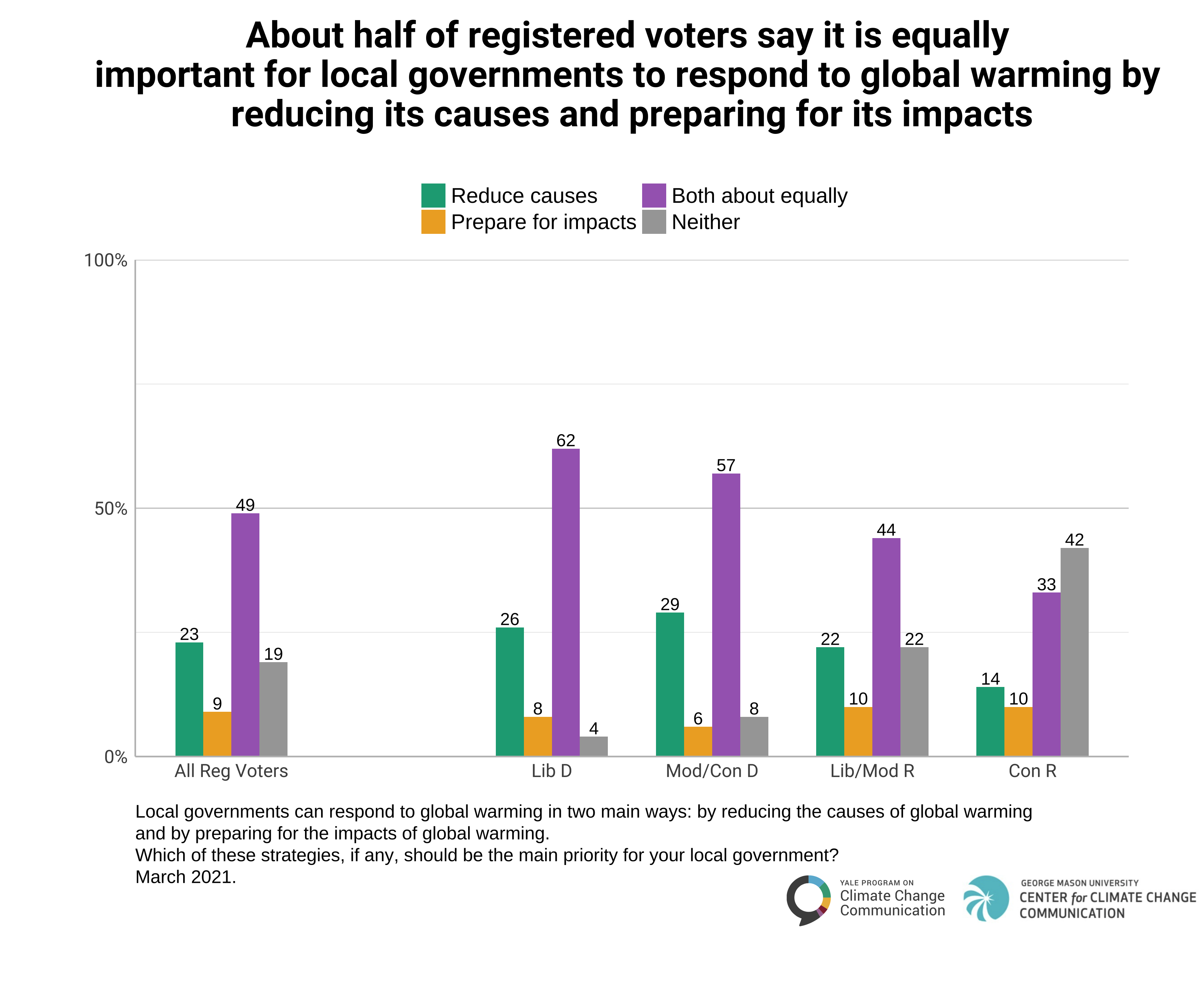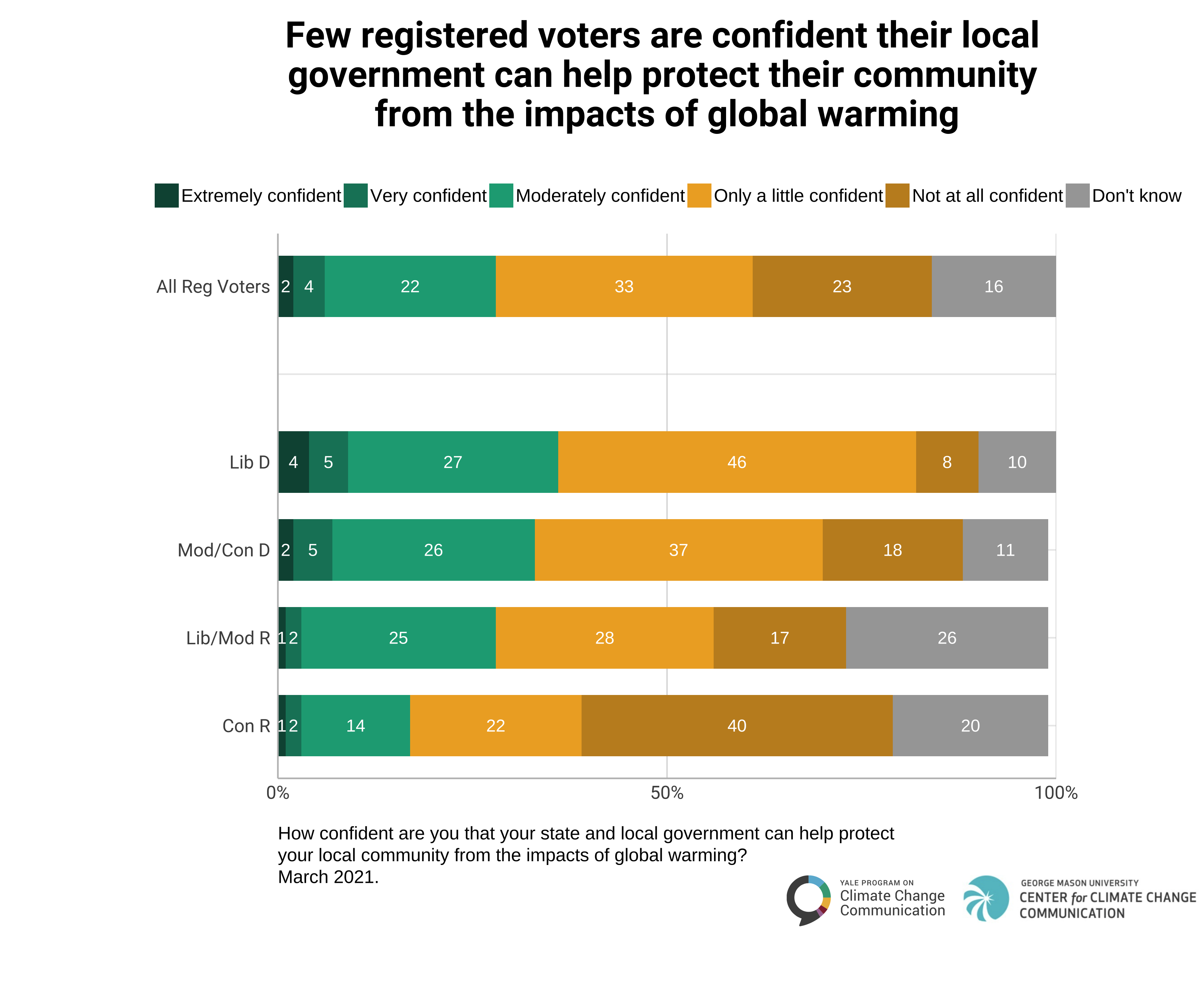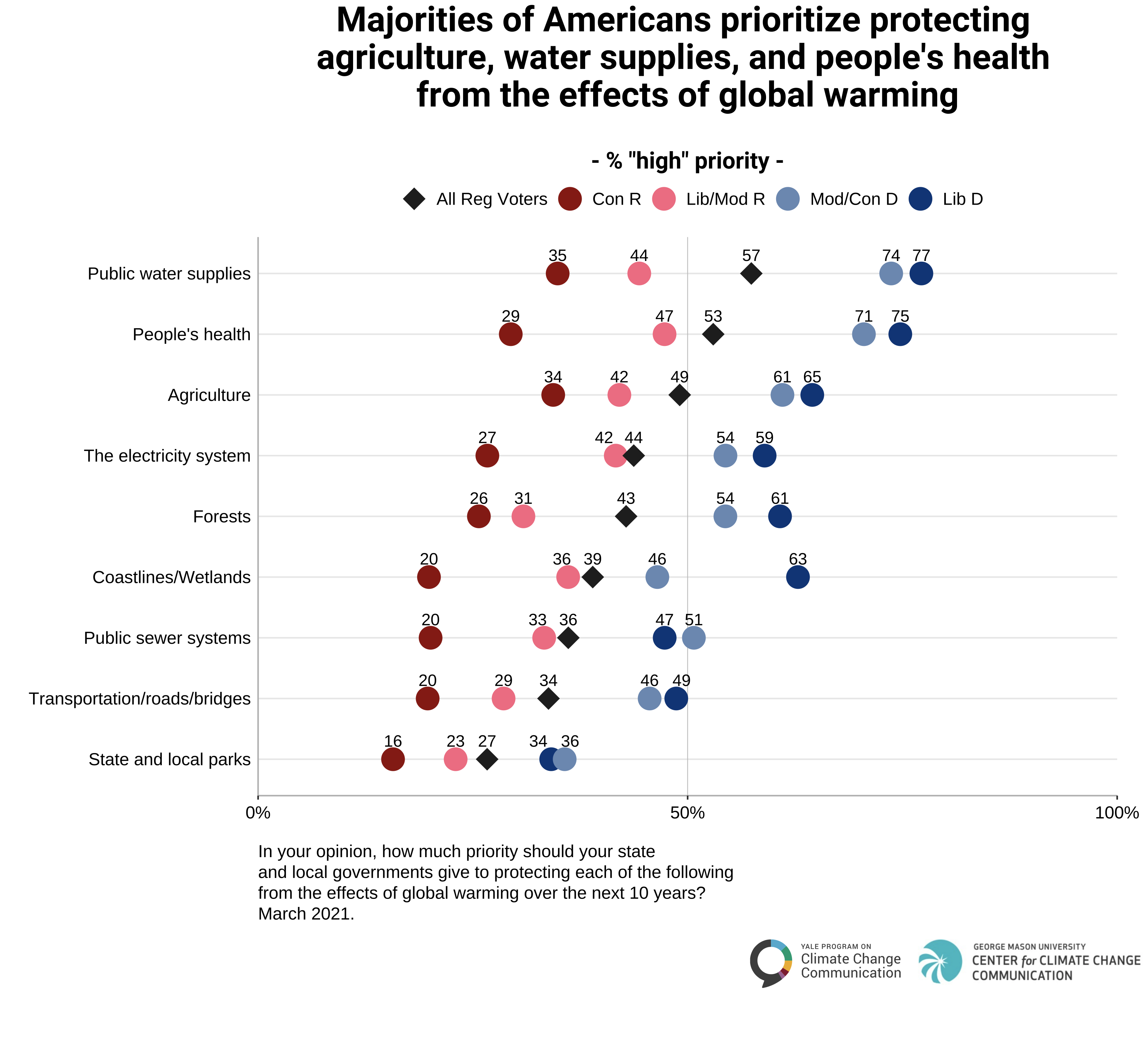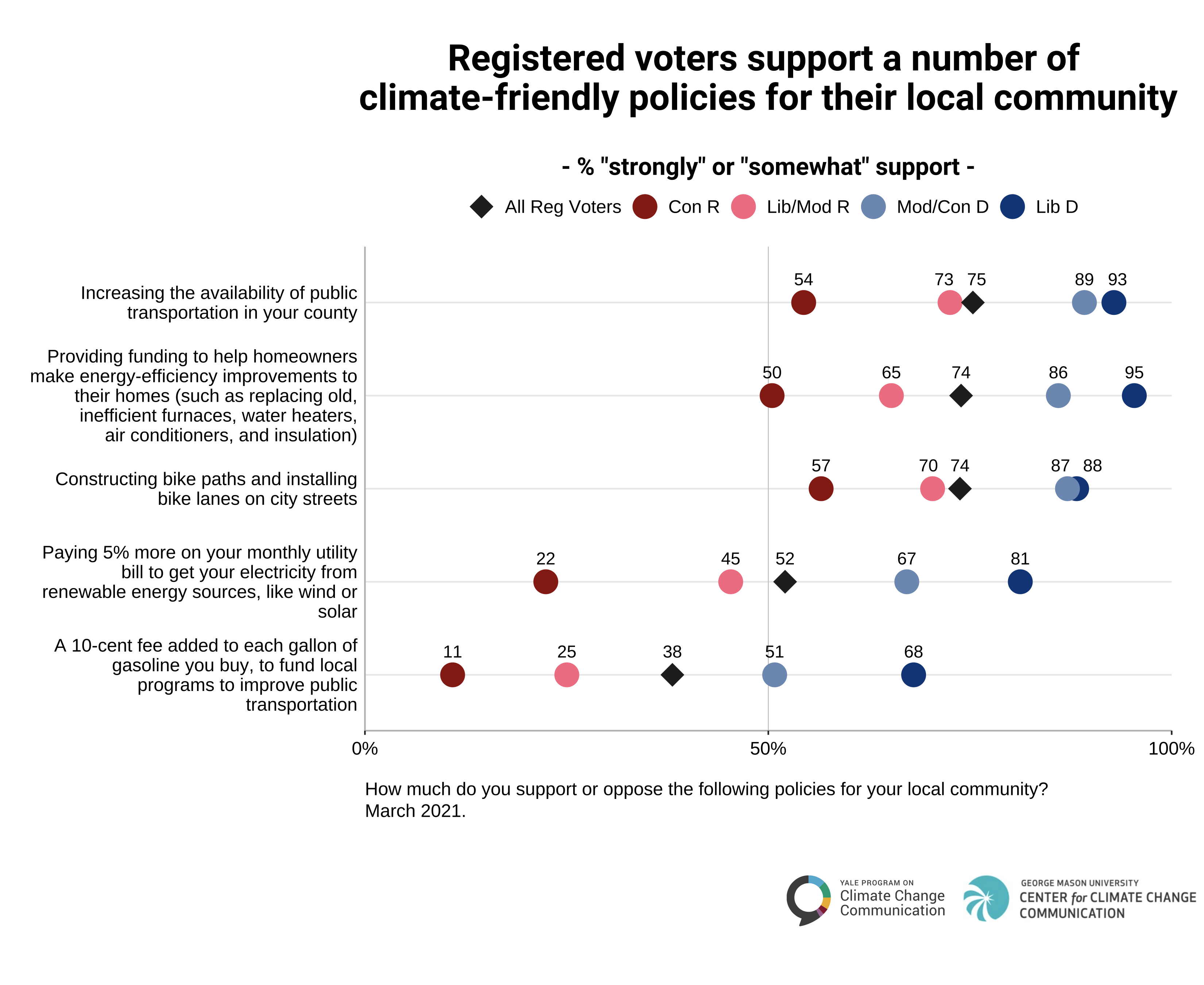Report · Jun 3, 2021
Politics & Global Warming, March 2021
By Anthony Leiserowitz, Edward Maibach, Seth Rosenthal, John Kotcher, Jennifer Carman, Xinran Wang, Matthew Goldberg, Karine Lacroix and Jennifer Marlon
Filed under: Policy & Politics
7. Local and State Government Action on Global Warming
7.1. About half of registered voters say it is equally important for local governments to respond to global warming by reducing its causes and preparing for its impacts.
About half of registered voters (49%) say their local government should prioritize both climate change mitigation (reducing the causes of global warming) and adaptation (preparing for the impacts of global warming) about equally, with an additional one in four (23%) saying the main priority should be mitigation, and nine percent saying it should be adaptation. Nineteen percent of registered voters (including about 42% of conservative Republicans) say their local government should not prioritize either of these approaches.
7.2. Few registered voters are confident their local government can help protect their community from the impacts of global warming.
Only about one in four registered voters are either “extremely” (2%), “very” (4%), or “moderately” confident (22%) their state and local government can help protect their local community from the impacts of global warming. More than half of registered voters are either “only a little” confident (33%) or “not at all” confident (23%), and 16% don’t know.
Liberal Democrats (36%) are the most likely to say they are at least moderately confident while conservative Republicans (17%) are the least likely to do so.
7.3. Majorities of registered voters prioritize protecting public water supplies and agriculture and people’s health from the effects of global warming.
Majorities of registered voters think their state and local governments should place a “high priority” on protecting public water supplies (57%) and people’s health (53%) from the effects of global warming over the next ten years.
Four in ten or more think protecting agriculture (49%), the electricity system (44%), and forests (43%) should be a high priority. Fewer place a high priority on protecting public coastlines/wetlands (39%), sewer systems (36%), transportation/roads/bridges (34%), or state and local parks (27%) from the effects of global warming.
Liberal Democrats are generally the most likely to place a high priority on protecting these forms of infrastructure from the effects of global warming, while conservative Republicans are the least likely.
7.4. Registered voters support a number of climate-friendly policies for their local community.
Large majorities of registered voters support climate-friendly policies for their local community including increasing the availability of public transportation in their county (75%), providing funding to help homeowners make energy-efficient improvements to their homes (74%), and constructing bike paths and installing bike lanes (74%). Large majorities of liberal Democrats, moderate/conservative Democrats, and liberal/moderate Republicans support these policies as do half or more conservative Republicans.
About half of registered voters (52%) support paying 5% more on monthly utility bills to get electricity from renewable energy sources. Fewer (38%) support a 10-cent fee per gallon on gasoline to fund local programs to improve public transportation.



